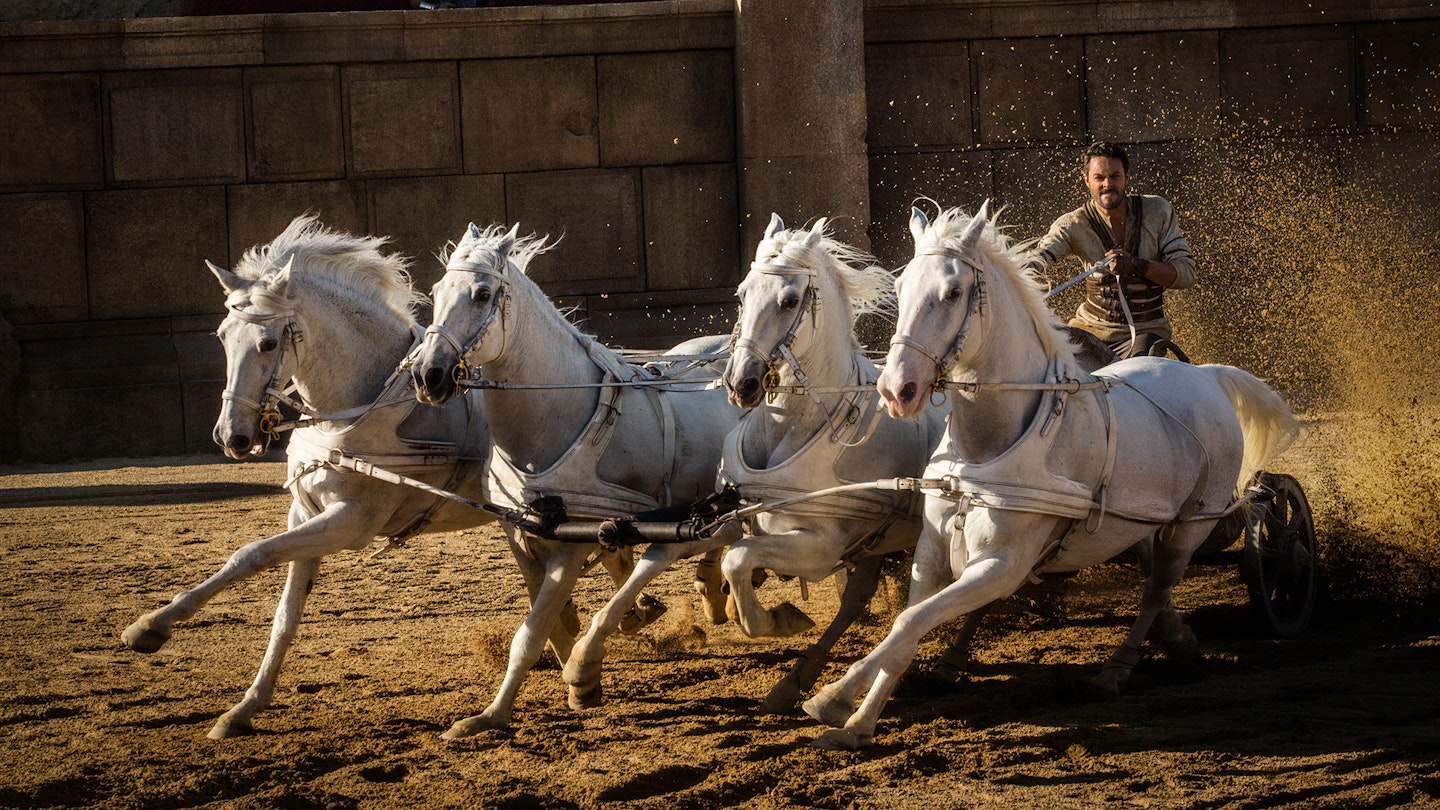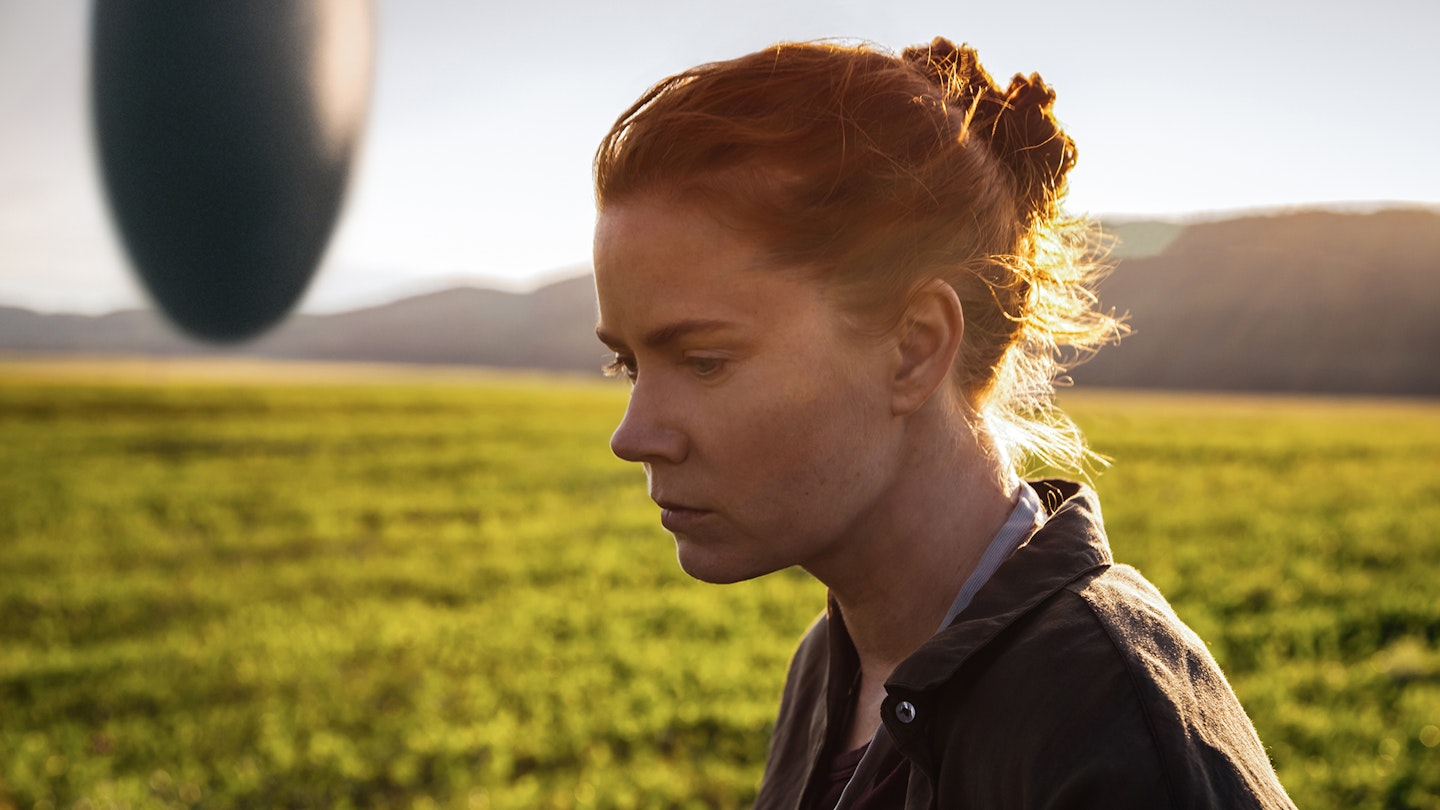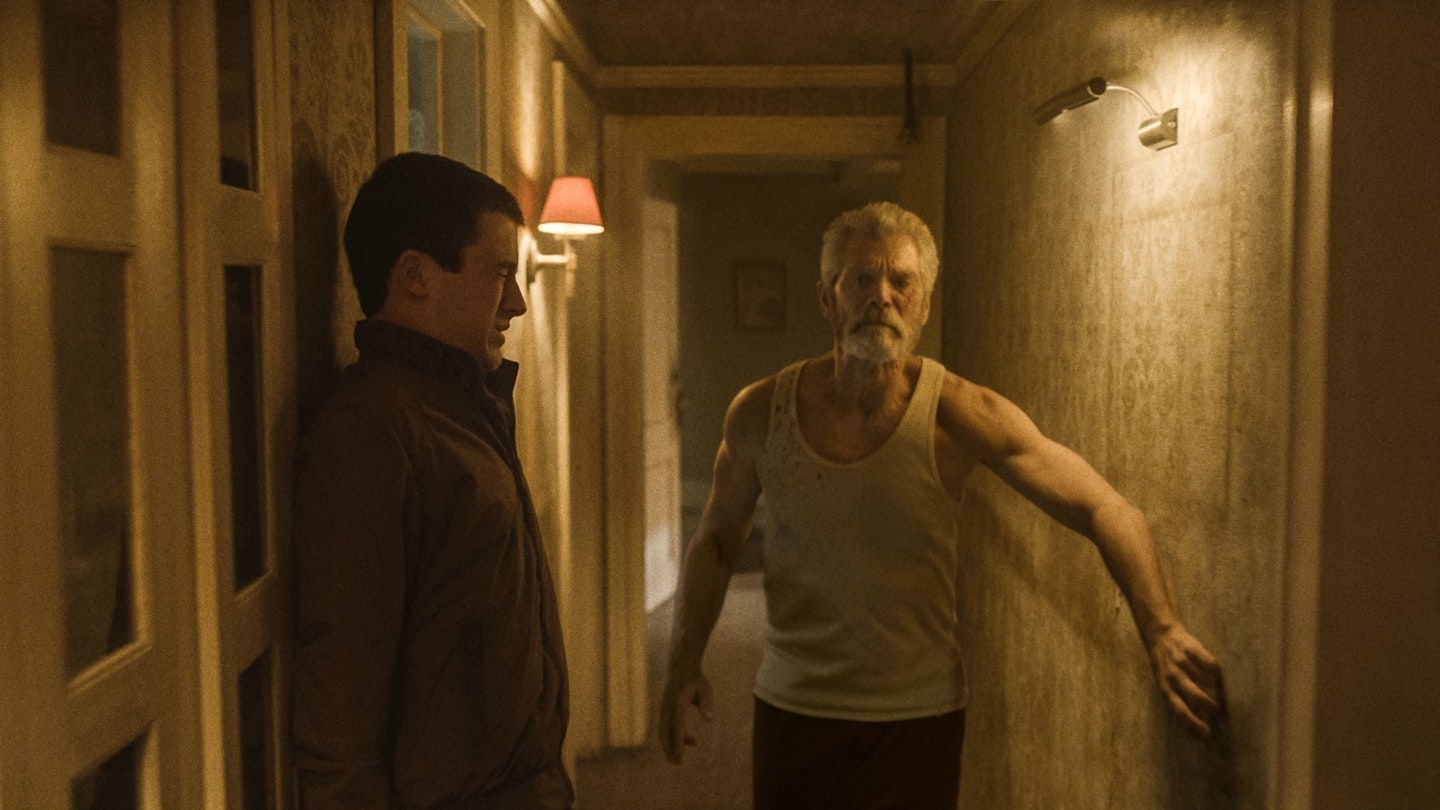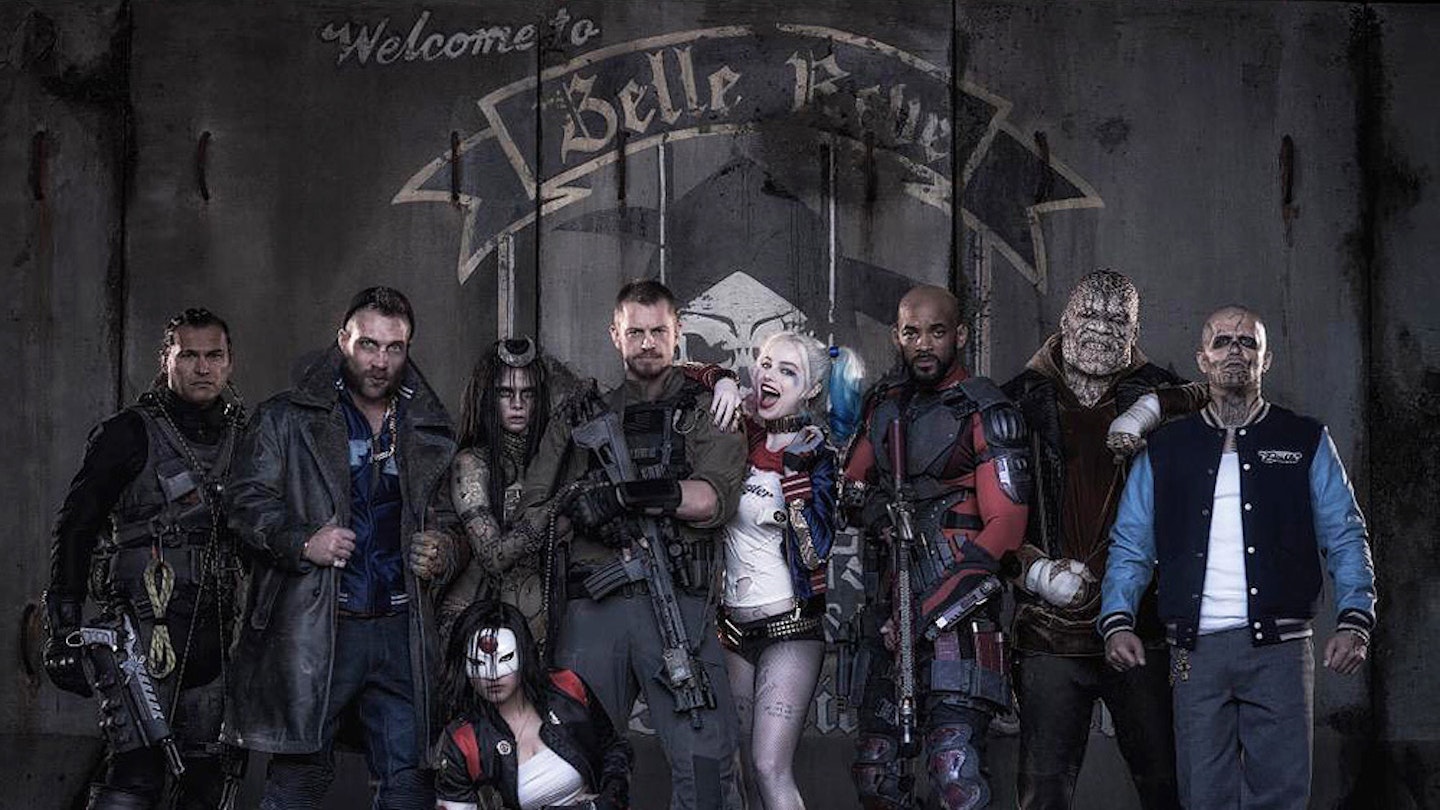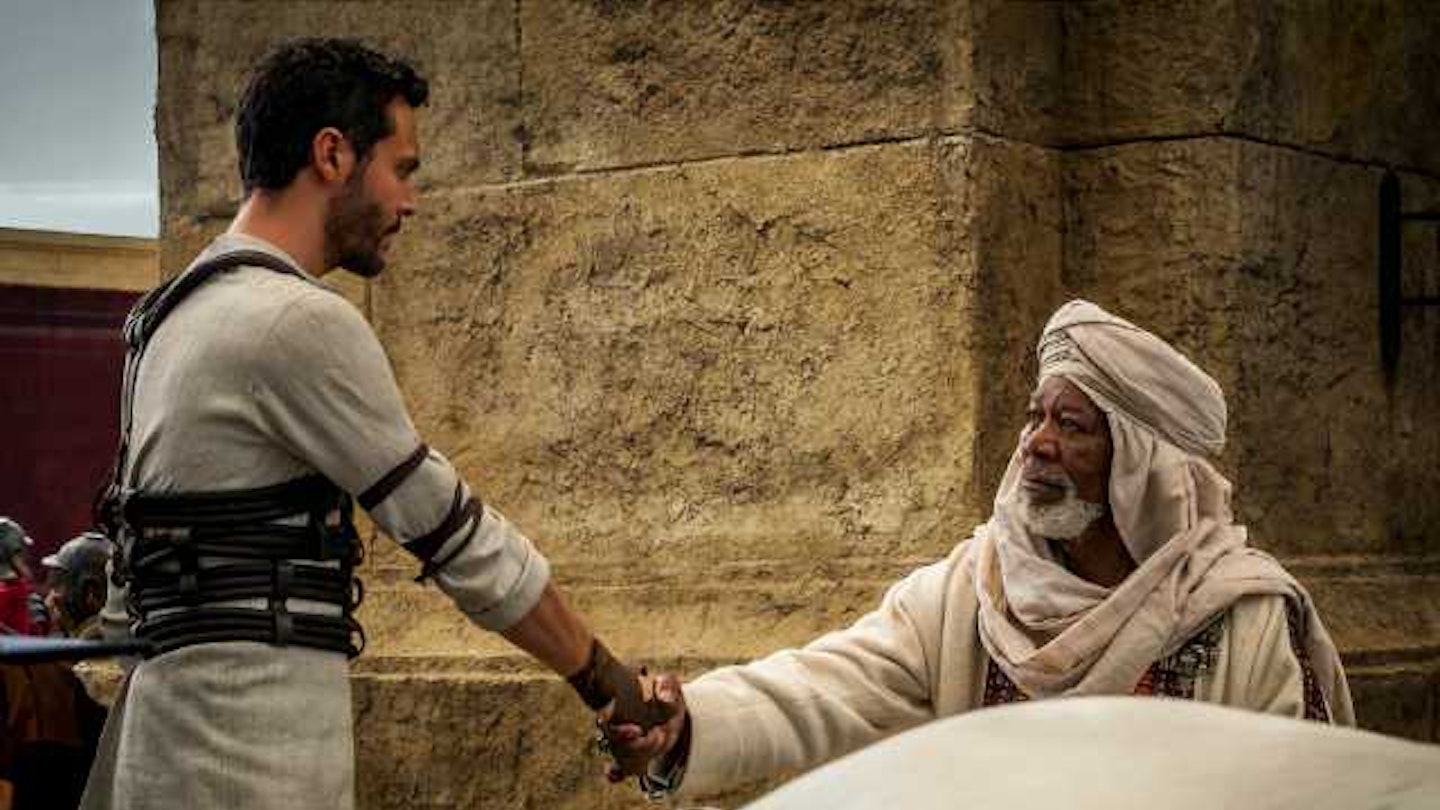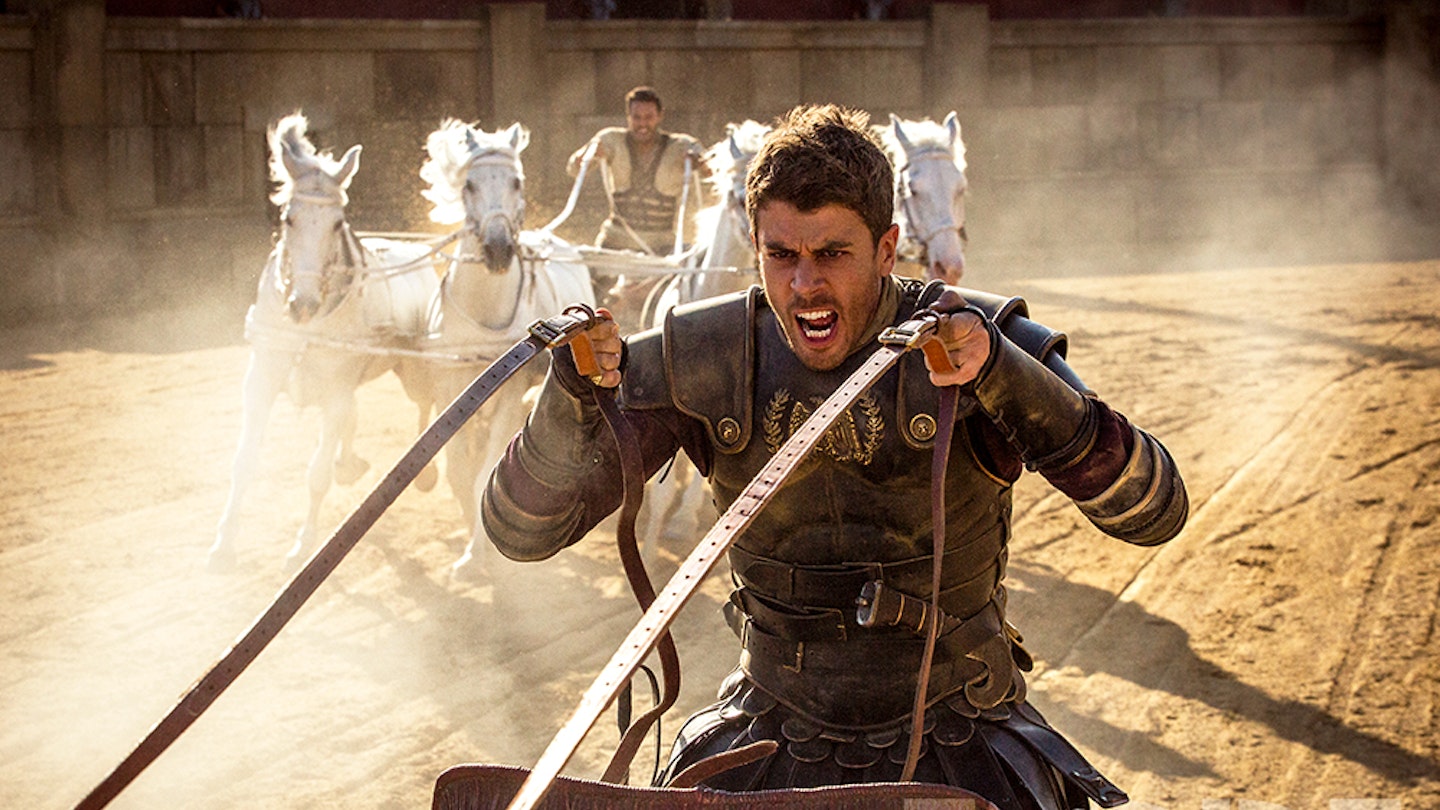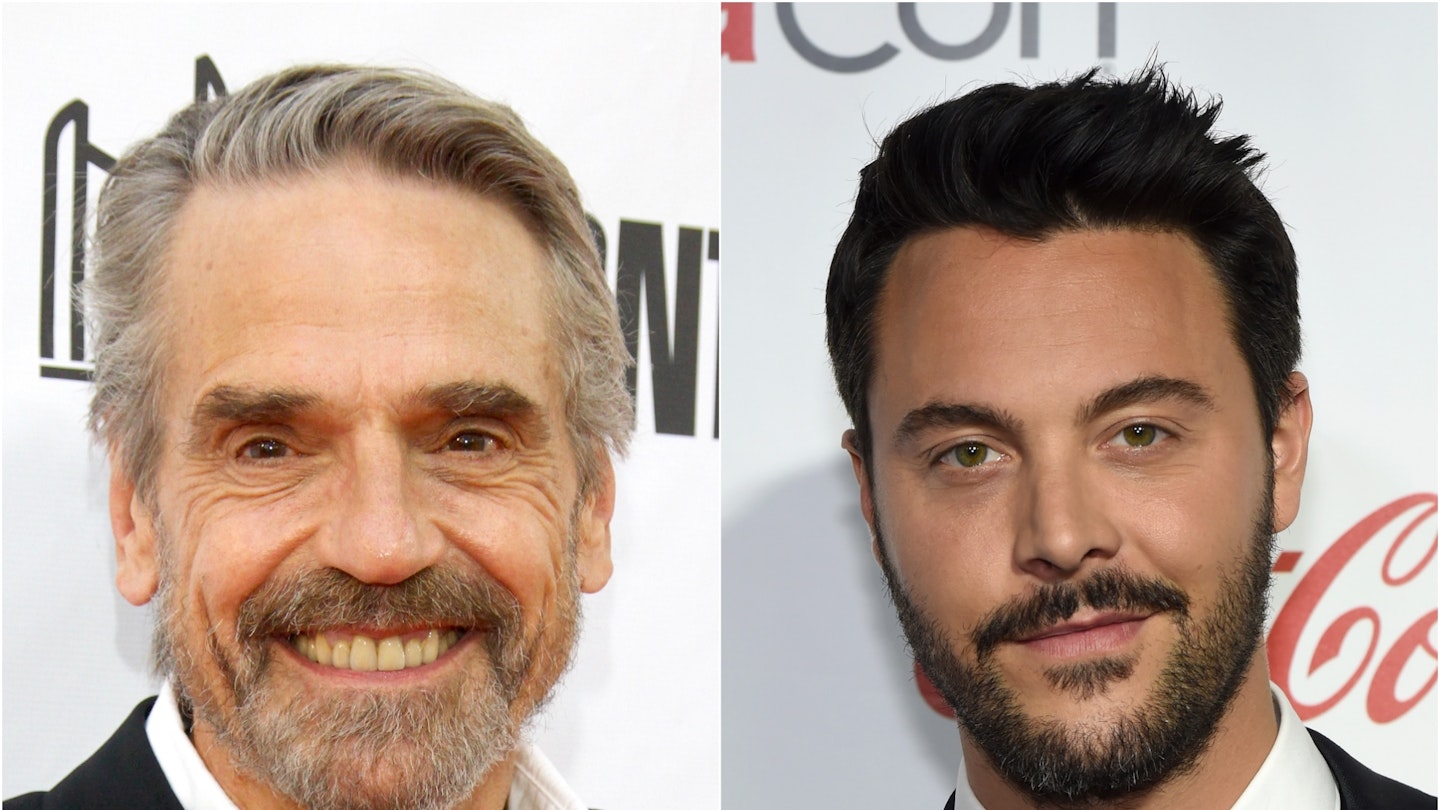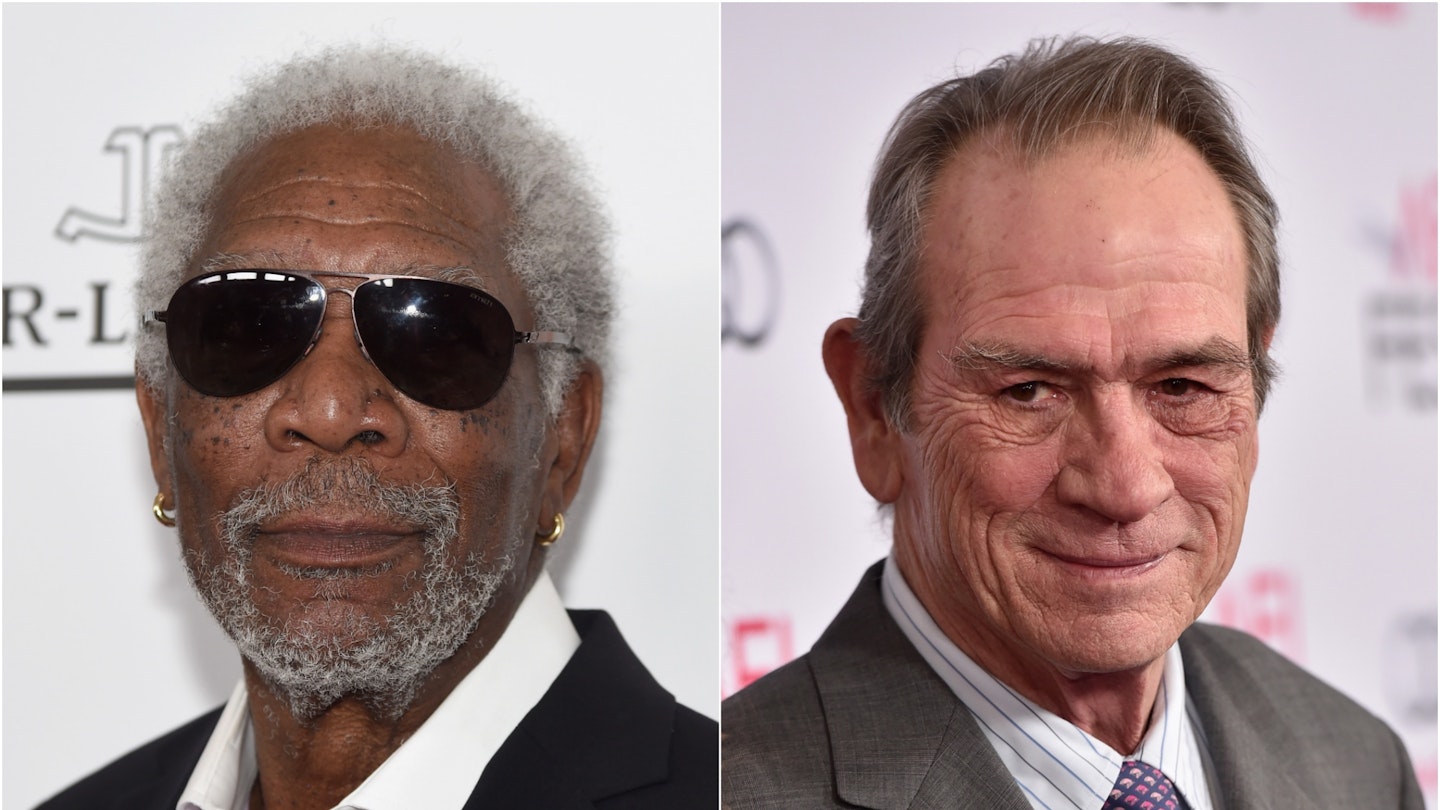It almost certainly doesn’t need saying, but just in case — this latest feature-length version of Ben-Hur will not be winning 11 Oscars. The sixth filmed version (a mini-series, two silent films, an animation and the famous one), it also follows the likes of Gladiator and The Phantom Menace, which riffed on different elements of the story or the action. It’s an adequate retelling, mostly, but with moments of eye-rolling ineptitude.
Judah (Huston) is one of the Jerusalem Ben-Hurs, a wealthy family living in the Roman-occupied city. Life is good until his adopted brother Messala (Kebbell), who left to join the army, returns three years later as a centurion with a request — that Judah informs on potential troublemakers. Pontius Pilate (Pilou Asbæk, aiming for the ruggedness of Russell Crowe but ending up closer to Pacey Witter) is coming to town and Messala needs to guarantee his safety. Judah refuses, a zealot he’s harbouring attempts to assassinate Pilate, and so Messala has the entire household arrested. Judah’s sentenced to life as a galley slave, his mother and sister are sentenced to death. Cue the quest for revenge.
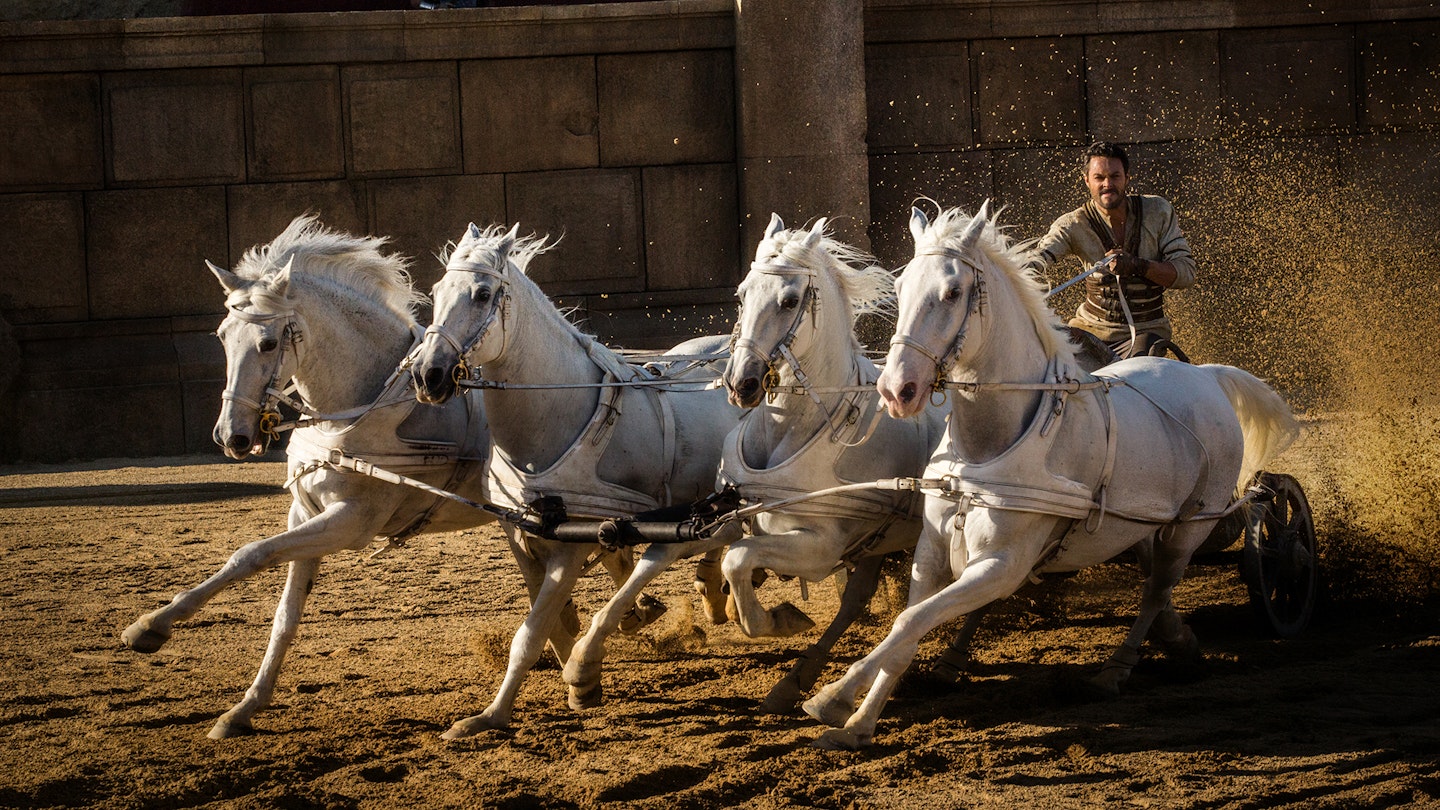
It’s an adequate retelling, mostly, but with moments of eye-rolling ineptitude.
All this, in any ordinary situation, would be a bad thing, but Judah is so over-privileged and infuriatingly bland, you’re almost rooting for Messala at this point. He’s a man we’ve seen being belittled by his adopted mother, and who has refused to coast through life on his new family’s wealth, instead deciding to make something of himself in the Roman army. Then there’s that assassination attempt — in previous versions the catalyst for the arrests was tiles accidentally falling from the Ben-Hurs’ roof, and in that situation Messala’s overreaction is another layer to his villainy. Here Judah leaves him with little option but to act.
It’s just one odd decision in a film littered with them — and for many the pay-off is unintended laughter. There’s the first appearance of Jesus (Rodrigo Santoro) where he’s identifiable not by his name, but because he’s doling out sage words (without being asked for them) while planing a piece of wood. (He’s a carpenter, get it?) And then there’s the assertion of Sheik Ilderim (Morgan Freeman), who musters all his grandiosity to tell Judah: “You cannot fight them in the streets, but there is another way — the Circus.” He means the chariot-racing stadium, but with the images it conjures of trapeze artists and clowns riding unicycles, that’s not how it plays in the moment.
But, of course, that chariot race is the main reason we’re here — if that flies, much can be forgiven. And there are moments it does, when — as scalps scrape along the sandstone or hooves bear down on stricken riders — the dangers feel real. It’s not short on spectacle over its ten-minute runtime. What’s missing is drama — too many faceless riders whose fates are of little consequence keeping Judah and Messala apart.
There’s no reason why the 1880 novel Ben-Hur: A Tale Of The Christ shouldn’t be adapted again — as we’ve covered, the Oscar-conquering Charlton Heston version wasn’t even the second version, never mind the first. But aside from a few flashes of invention in the action sequences, Timur Bekmambetov’s fails to live up to its illustrious forebears.
